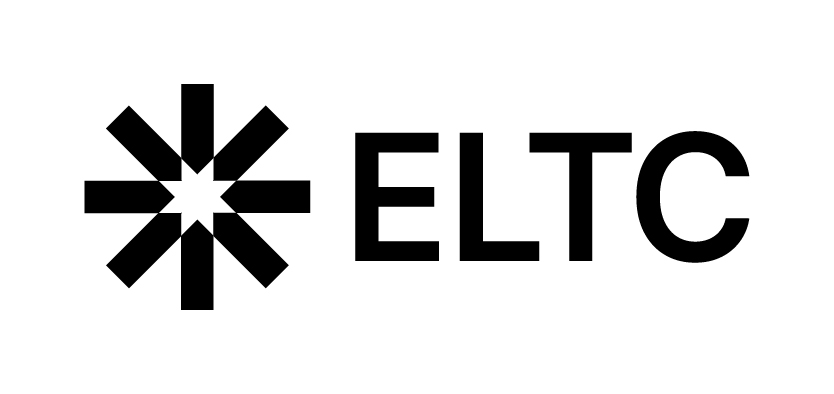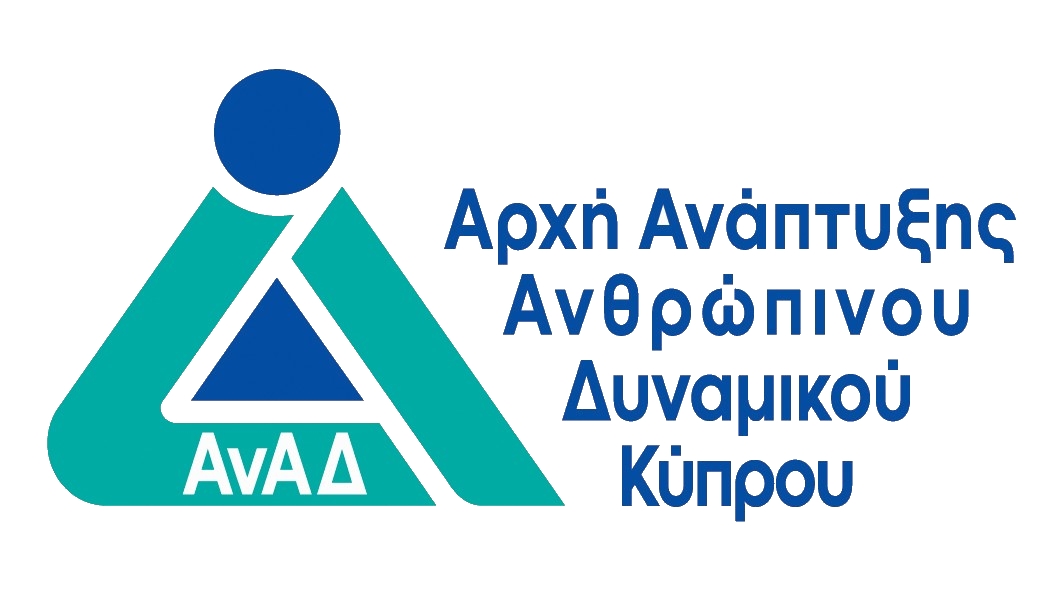
Establishing a Family Office in Cyprus: Building, managing and sustaining wealth

ΠΕΡΙΓΡΑΦΗ
Our introductory course on Establishing a Family Office in Cyprus is designed for both newcomers and seasoned professionals in the family office industry.
This programme provides a comprehensive exploration of family office models, operational strategies, and compliance issues. Through interactive modules, case studies, and real-world simulations, participants will learn to navigate the complexities of wealth management for high-net-worth families. This course prepares participants to establish and manage a family office tailored to the unique needs and goals of their clients.
Learn from industry experts and engage in practical exercises that offer real-world insights into the family office sector. Gain a thorough understanding of the various models and operational strategies, ensuring you are well-equipped to manage the intricate details of family wealth.
- Stay ahead with the latest trends and best practices in family office management.
- Develop a comprehensive understanding of the unique challenges and opportunities within the family office industry in Cyprus.
- Learn about the legal, economic, and cultural contexts that are essential for setting up and managing family offices effectively.
This course is ideal for professionals already working within a family office, lawyers, legal counsel, advocates, accountants, and auditors involved in wealth management.
- Join us to master the intricacies of establishing and managing a family office in Cyprus, ensuring you provide comprehensive, tailored solutions to high-net-worth families.
- Gain a certificate accredited by the Human Resource and Development Agency of Cyprus to prove your competency and knowledge to prospective employers or clients in this highly sought after industry.
Why this course?
The family office industry often suffers from a lack of clear definition and standardization, which can lead to inconsistencies in practice and understanding. This ambiguity makes it difficult for professionals to ensure they are fully informed about the best practices and nuances of managing family wealth. A structured course offers a way to standardize knowledge and practices, providing clarity and a solid foundation for those entering or working within the industry.
Until now, Cyprus has not had a dedicated course addressing the specific needs and characteristics of the family office industry within its borders. Most existing training programs are international in scope, which can overlook the specific legal, economic, and cultural context of Cyprus. Employers and professionals in the region have expressed a need for a localized training program that addresses the specifics of setting up and managing family offices in Cyprus, ensuring relevance and direct applicability of the knowledge imparted.
The family office sector is experiencing significant growth, both globally and in Cyprus. This growth is driven by an increase in the number of affluent families seeking sophisticated ways to manage their wealth, including investments, succession planning, and legal compliance. The expanding market creates a demand for well-trained professionals who can competently handle the complex needs of these families.
There has been a clear call from employers within the industry for comprehensive training that covers all areas of family office management. They prefer a cohesive and holistic training course over piecemeal or ad-hoc training sessions, which often result in gaps in knowledge and skills. Employers need employees who can offer holistic solutions—crucial in this industry where understanding the interconnections between various aspects of wealth management is key to delivering value to high-net-worth clients.
The nature of family offices demands a broad range of skills and an understanding of how different aspects of the family’s needs integrate to form a comprehensive management strategy. Training in this area allows participants to develop a holistic approach to their services, aligning with the industry's inherent need to provide comprehensive, tailored solutions to clients. This approach not only enhances the effectiveness of the family office’s function but also increases the satisfaction and trust of clients, ensuring their long-term engagement.
ΣΕ ΠΟΙΟΥΣ ΑΠΕΥΘΥΝΕΤΑΙ
- Professionals already working within a family office in Cyprus, to be eligible employees of family offices must have more than an administrative role.
- Lawyers/legal council and advocates
- Accountants and auditors who manage wealth in the family office setting.
ΠΕΡΙΣΣΟΤΕΡΕΣ ΠΛΗΡΟΦΟΡΙΕΣ
COURSE CONTENT
Part 1
Introduction
- Introduction to the family office concept.
- A macro-view of family wealth
- How much do clients really need to fund a family office
- What is a family today?
- What is a family office and who are they for?
- Purpose and definition of the family office
- Key characteristics of a family office
- Traditional paths to the family office (separation, liquidity event, fund redemption).
- Basic infrastructure of a family office.
The trends in the family office landscape
- Discussion of the traditional family office model
- Discussion of the latest trends in the family office model
- Discussion of the types of clients interested in establishing a family office in Cyprus.
- Case study 1: a successful family office.
- Discussion of the case study
- Case study 2: a successful family office
Challenges in managing family wealth
- -Historical background of the family office
- Challenges in the past
- Challenges Today
- High-net-worth wealth – what is it?
- Perceptions of high- net-worth people
- What challenges do High-net-worth individuals face?
- What can a family office do for the family?
- The changing priorities of different generations
Family Office Archetypes
- Overview of various family office types.
- The founder’s family office
- The virtual administrative and compliance family office
- The philanthropic family office
- The direct investment and investment office
- The family business – focused family office
- The multigenerational-focused family office.
- Lifestyle management - focused family office
- Interactive case study - matching archetypes to family goals and legacy
The Difference between Multi and single family offices
- Why the single-family office solution
- Why the multifamily office solution
- Common structures and services offered by each type.
- Why choose a multi- family office (cost sharing, economies of scale, broader expertise)
- Situations where the multi-family office might offer sufficient privacy and customization
- Case study and group exercise -evaluation - single- or multi-family office?
- Case studies and discussion: a showcase of successful single-family and multi-family offices
Family office fundamental services: services to be provided
- A look at the comprehensive services offered
- Overview of strategic services
- Overview of technological services
- Overview of tax and wealth planning
- Overview of investment services
- Overview of risk management services
- Overview of philanthropy services
- Overview of legal services
- Overview of family services
- Overview of financial services
- Overview of operational services
- Comparison of in- house vs. outsourced services.
- Case study: designing a service package for a new family office.
Pathways to selecting a family office
- Importance of selecting the right family office.
- Factors influencing the choice of structure.
- Identifying needs and objectives of clients - case study activity
- Clarifying the purpose of engaging a family office
- Assessing the financial situation and goals
- Determining the services required.
- Comparing and contrasting real-life family offices - side-by-side comparisons - group activity.
- Making the final decision - considering cultural fit and communication style
- Negotiation terms and agreements
- Finalizing the selection process.
Summary of Part 1
- Recap of key insights and lessons learned from each module in part 1
- Q&A session for queries and clarification
- Assignment: choosing the family office according to the wishes of the client - combining lessons learned in part 1.
- Discussion and feedback of the assignment
Part 2
Establishing a family office, operational aspects, and management: How to determine family office needs:
- The role of needs assessments in family office planning
- Key considerations before starting the assessment (e.g. family values, vision, and goals).
- Exploring the factors that influence the needs of a family office (financial requirements (asset management, tax planning, and estate planning, family structure and dynamics, legal and regulatory, and future scalability and adaptability to changing family needs)
- Steps in the needs assessment process: data collection, interviews with family members, and financial analysis.
- Review and case studies and lessons learned from family offices that needed adjustment
Family Values, mission and vision, and the family office
- The value statement
- Values mission and the family office
- The importance of vision for the family office
- Elements of a successful vision
- Case studies: real-world mission statements and discussion
- Activity: establishing the vision.
Establishing and structuring the family office
- Overview of the considerations for establishing a family office.
- Where to locate the family office
- Designing the family office in the new era of private wealth
- The considerations that you need to have in mind: function, jurisdiction, legal entity considerations, internal structure, governance, design considerations
- Case study - highlighting the importance of these considerations.
- Case studies - successful family offices around the world.
Functions considerations
- Defining the functions of the family office:
- Investment management
- Wealth planning and structuring
- Financial reporting and accounting
- Tax planning and compliance
- Philanthropic services
- Other specialized services
- The importance of tailoring functions to suit family needs.
- Assessing the unique requirements of the family and applying them.
- Identifying unique areas where external expertise may be required.
Jurisdiction considerations
- Understanding the legal and regulatory landscape in different jurisdictions
- Assessing the tax implications of various jurisdictions
- Evaluating the level of privacy and confidentiality afforded.
- Considering political stability and economic factors
- Examining the ease of doing business and administrative requirements.
- Factors influencing jurisdiction choice: residency, location of assets, access to investment opportunities, cultural and personal preferences, risk management and asset protections.
- Popular jurisdictions for family offices
- Key metrics to evaluate jurisdictional advantages: legal and regulatory, tax regime, privacy. Infrastructure and service providers, reputation and perception.
Legal entity and licensing considerations
- Overview of the operational needs and legal structure of a family office.
- What legal form should the family office take/
- Choice of entity
- Who should own the family office and how i.e legal ownership, beneficial ownership, models of ownership
- Who should manage the family office and how = to structure the legal formalities, structuring the scope of services?
- Who should pay for establishing a family office
- Funding options - taking them into account for the choice of legal entity.
- Licensing according to the activity - practical analysis according to different activities.
Internal structure considerations
- Overview of what constitutes internal structure and why it is critical.
- Definition of the importance of internal structure in a family office
- Overview of organizational design and operational efficiency
- Aligning internal structure with family goals and legacy.
- Different organizational structures - (flat vs. Hierarchical, centralized vs. decentralized)
- Pros and cons of various design models in the context of family offices.
- Case studies illustrating successful organizational structures in prominent family offices.
Transition to a family office
- Communicating the decision to relevant stakeholders
- Coordinating the transfer of assets and information
- Establishing clear lines of communication and expectations.
- Overview of the step-by-step process to creating a family office in Cyprus
- Case study: The client is considering setting up a family office in Cyprus - Activity to follow.
Summary of Part 2
- Recap of key insights and lessons learned from each module in part 2
- Q&A session for queries and clarification
- Assignment regarding establishing a family office, using all the considerations and lessons learned from part 2
- Feedback and discussion of the assignment
Part 3
Operational and management of the family office: Governance - Monitoring and reviewing performance
- The importance of balanced leadership and delegation.
- The importance of effective communication
- The importance of Board oversight.
- The importance of succession and contingency planning.
- The importance of continuous operational improvement
- Setting benchmarks and goals
- Regularly assessing the performance of the family office
- Making adjustments as needed to optimize outcomes.
- Attributes of effective family office governance: governance infrastructure
Management considerations: legal tax and regulatory
- Understanding the legal framework surrounding family offices.
- Addressing issues related to taxation, estate planning, and investments.
- Setting up internal controls and audit mechanisms.
- Case study highlighting possible internal controls.
Management considerations - Risk management
- Identifying potential risks (financial, operational, reputational) associated with the family office.
- Implementing risk management strategies and insurance solutions.
- Regularly reviewing and updating risk management practices.
- Internal controls - processes and procedures that a family office uses to build integrity and security functions.
- How and the importance of conducting a periodic formal risk assessment to combat changing risks
International compliance and regulations
- Understanding global legal compliance challenges for family offices
- Discussion on jurisdictional considerations and international tax laws.
- Case studies and real-world examples.
- The effect of international laws on the Family Office.
Governance Issues for the Family Office.
- Overview of governance issues for the family office
- Benefits of a good board
- Importance of independent directors
- Accountability to the family
- Decision-making processes
- Hallmarks of good governance
- Family constitutions? - a new trend?
Family office talent, compensation, and recruitment
- Family office staffing
- Good chemistry and a culture fit
- Background checks
- Compensation
- Managing family office talent
- Role clarity and job description
- Performance management
- Family member compensation
Family Dynamics and Conflict Resolution
- Addressing and managing family conflicts and sensitivities.
- Creating mechanisms for dispute resolution within the family structure.
- Facilitating family meetings and communication to ensure alignment and foster relationships.
- Case study and group discussion on resolving family disputes.
Summary of Part 3
- Recap of key insights and lessons learned from each module in part 3
- Q&A session for queries and clarification
- Assignment relating to the operational and management of the family office in practice to reinforce lessons learned.
- Feedback and discussion
Part 4
Succession and estate planning: Succession and estate planning
- What is succession planning and why is it important
- Explain the succession planning mechanisms
- The practical considerations in succession planning
- The context of succession planning
- Overview of the succession planning mechanisms
Estate planning vehicles
- Introduction
- Characteristics of trusts
- Types of trusts and their uses.
- Family requirements and solutions to consider
- Other types of vehicles
- Life insurance considerations
- Modern families - issues that may arise for trustees.
- What you should know about trusts.
Crisis management and continuity
- Strategies for crisis management and maintaining operations during disruptions.
- Developing business continuity plans to ensure family officers can continue to operate
- Assessing potential risks that could lead to a crisis and developing mitigation strategies
- Legal responsibilities involved in crisis management and continuity planning
Summary of Part 4
- Recap of key insights and lessons learned from each module in part 1
- Q&A session for queries and clarification
- Assignment relating to contents of part 4 and lessons learned.
- Feedback and discussion.
Part 5
Financial management and investment strategy: Strategic asset allocation
- Definitions and importance in wealth management
- Tools and methods to evaluate family risk profiles
- Developing a balanced portfolio according to needs.
- Exploring various asset classes
- The importance of diversification
- Developing investment policies and guidelines
- Crafting policies that align with financial goals and values
- Active v passive management
Integrating sustainable practices
- Sustainability
- Understanding environmental social and governance factor
Philanthropy
- Philanthropy legacy and social capital
- Options for foundations, donor-advised funds, and trusts
- Setting up charitable structures or foundations.
- Engaging family members in philanthropic endeavors and defining a philanthropic strategy.
- Activity - choosing the correct vehicle for philanthropy
Concluding Workshop
- Introduction to hypothetical clients
- Participants work in groups to design a comprehensive strategy for a fictional family office, incorporating elements from each part of the course
Πληροφορίες Εκπαιδευτή
Αναλυτικό Κόστος Σεμιναρίου
Για Δικαιούχους ΑνΑΔ
- € 1600.00
- € 1320.00
- € 0.00
- € 280.00
- € 280.00
Για μη-Δικαιούχους ΑνΑΔ
- € 1600.00
- € 480.00
- € 212.80
- € 1120.00
- € 1,332.80
Κοστολογικές Πληροφορίες
Our training center offers special prices for individuals who are not eligible for funding and the opportunity to pay the course fee in manageable installments. Unemployed participants are eligible for HRDA funding provided they meet certain requirements.
ΠΡΟΓΡΑΜΜΑ ΣΕΜΙΝΑΡΙΟΥ
Δευτέρα - 07 Οκτ 2024
Ώρα
16:00 - 20:00
ΕΚΠΑΙΔΕΥΤΗΣ:
Κυριάκος ΚούρτελλοςΤοποθεσία:
OnLine Virtual Classroom
Τετάρτη - 09 Οκτ 2024
Ώρα
16:00 - 20:00
ΕΚΠΑΙΔΕΥΤΗΣ:
Κυριάκος ΚούρτελλοςΤοποθεσία:
OnLine Virtual Classroom
Δευτέρα - 14 Οκτ 2024
Ώρα
16:00 - 20:00
ΕΚΠΑΙΔΕΥΤΗΣ:
Κυριάκος ΚούρτελλοςΤοποθεσία:
OnLine Virtual Classroom
Τετάρτη - 16 Οκτ 2024
Ώρα
16:00 - 20:00
ΕΚΠΑΙΔΕΥΤΗΣ:
Κυριάκος ΚούρτελλοςΤοποθεσία:
OnLine Virtual Classroom
Δευτέρα - 21 Οκτ 2024
Ώρα
16:00 - 20:00
ΕΚΠΑΙΔΕΥΤΗΣ:
Κυριάκος ΚούρτελλοςΤοποθεσία:
OnLine Virtual Classroom
Τετάρτη - 23 Οκτ 2024
Ώρα
16:00 - 20:00
ΕΚΠΑΙΔΕΥΤΗΣ:
Κυριάκος ΚούρτελλοςΤοποθεσία:
OnLine Virtual Classroom
Τετάρτη - 30 Οκτ 2024
Ώρα
16:00 - 20:00
ΕΚΠΑΙΔΕΥΤΗΣ:
Κυριάκος ΚούρτελλοςΤοποθεσία:
OnLine Virtual Classroom
Δευτέρα - 04 Νοε 2024
Ώρα
16:00 - 20:00
ΕΚΠΑΙΔΕΥΤΗΣ:
Κυριάκος ΚούρτελλοςΤοποθεσία:
OnLine Virtual Classroom
Τετάρτη - 06 Νοε 2024
Ώρα
16:00 - 20:00
ΕΚΠΑΙΔΕΥΤΗΣ:
Κυριάκος ΚούρτελλοςΤοποθεσία:
OnLine Virtual Classroom
Δευτέρα - 11 Νοε 2024
Ώρα
16:00 - 20:00
ΕΚΠΑΙΔΕΥΤΗΣ:
Κυριάκος ΚούρτελλοςΤοποθεσία:
OnLine Virtual Classroom
Τετάρτη - 13 Νοε 2024
Ώρα
16:00 - 20:00
ΕΚΠΑΙΔΕΥΤΗΣ:
Κυριάκος ΚούρτελλοςΤοποθεσία:
OnLine Virtual Classroom
Δευτέρα - 18 Νοε 2024
Ώρα
16:00 - 20:00
ΕΚΠΑΙΔΕΥΤΗΣ:
Κυριάκος ΚούρτελλοςΤοποθεσία:
OnLine Virtual Classroom
Τετάρτη - 20 Νοε 2024
Ώρα
16:00 - 20:00
ΕΚΠΑΙΔΕΥΤΗΣ:
Κυριάκος ΚούρτελλοςΤοποθεσία:
OnLine Virtual Classroom
Δευτέρα - 25 Νοε 2024
Ώρα
16:00 - 20:00
ΕΚΠΑΙΔΕΥΤΗΣ:
Κυριάκος ΚούρτελλοςΤοποθεσία:
OnLine Virtual Classroom
Τετάρτη - 27 Νοε 2024
Ώρα
16:00 - 20:00
ΕΚΠΑΙΔΕΥΤΗΣ:
Κυριάκος ΚούρτελλοςΤοποθεσία:
OnLine Virtual Classroom
Δευτέρα - 02 Δεκ 2024
Ώρα
16:00 - 20:00
ΕΚΠΑΙΔΕΥΤΗΣ:
Κυριάκος ΚούρτελλοςΤοποθεσία:
OnLine Virtual Classroom
Τετάρτη - 04 Δεκ 2024
Ώρα
16:00 - 18:00
ΕΚΠΑΙΔΕΥΤΗΣ:
Κυριάκος ΚούρτελλοςΤοποθεσία:
OnLine Virtual Classroom
 Ελληνικά
Ελληνικά  English
English



 Αγγλικά
Αγγλικά
 66 ώρες
(
17 μέρες
)
66 ώρες
(
17 μέρες
)


